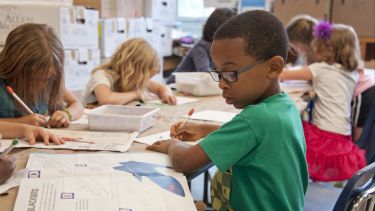As another academic year commences, it is important to consider the complexities faced by children making the transition from Reception into Year 1. This move is not just a simple change of classrooms; it represents a significant shift in children’s curricular and pedagogical experiences.
In Reception, the classroom environment is set up to be a holistic learning space. Distinct areas - such as role play, construction, sand and water, and outdoor spaces - enable children to exercise a degree of autonomy, navigating their own learning journeys with the support of skilled adults. This is in contrast to Year 1, where the pedagogical environment is more structured. Children are commonly seated at tables in ability-based groupings and adhere to a fixed timetable, including regulated outdoor playtimes.
Additionally, this transition brings about a significant curricular shift. While Reception delivers the Early Years Foundation Stage (EYFS) framework—a holistic framework comprising seven broad areas of learning—the curriculum in Year 1 (Key Stage 1) becomes more discrete, compartmentalising learning into subject-based categories like English, History, Geography, and Science.
Reported assessment data at the end of Reception indicates that 30% of children do not meet expected outcomes in key areas of the EYFS — ranging from social and emotional development to language skills and basic Literacy and Mathematics. Children less likely to reach these outcomes are namely those receiving Free School Meals, who have English as an Additional Language, and those with Special Educational Needs. For these children, transitioning to Year 1 not only involves adapting to a new educational environment but also marks the commencement of a critical educational phase with pre-existing challenges.
Despite its importance, little empirical research exists on the lived experiences of children navigating this transition. My ongoing research seeks to fill this knowledge gap by exploring both the experiences of the children undergoing this transition and the perspectives of teachers and parents responsible for guiding them through it. In summary, it is important to rigorously investigate, understand, and address the multifaceted issues surrounding this transitional period to optimise educational outcomes for our youngest learners.



